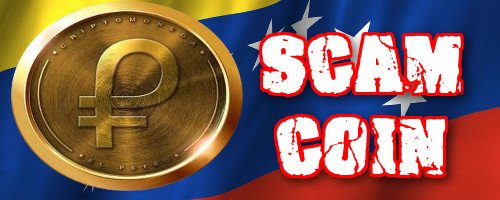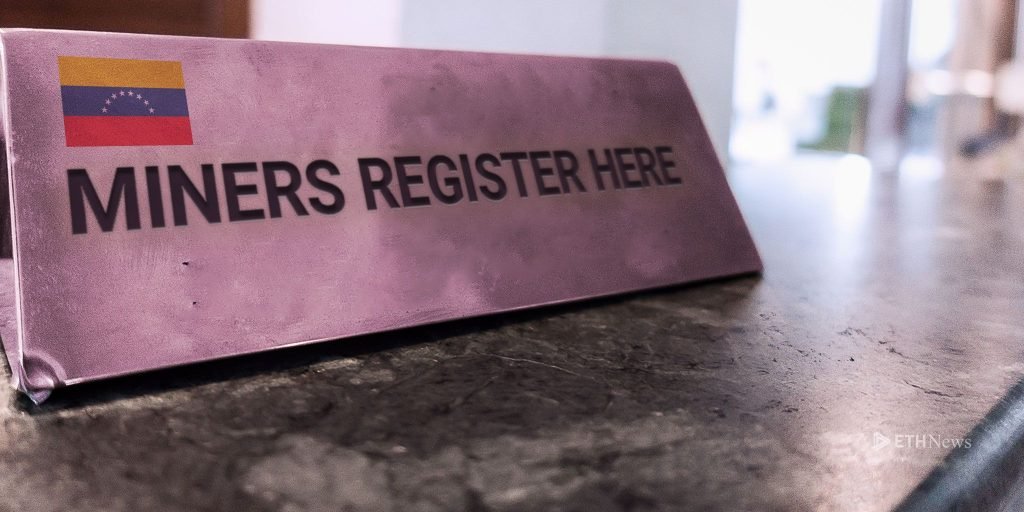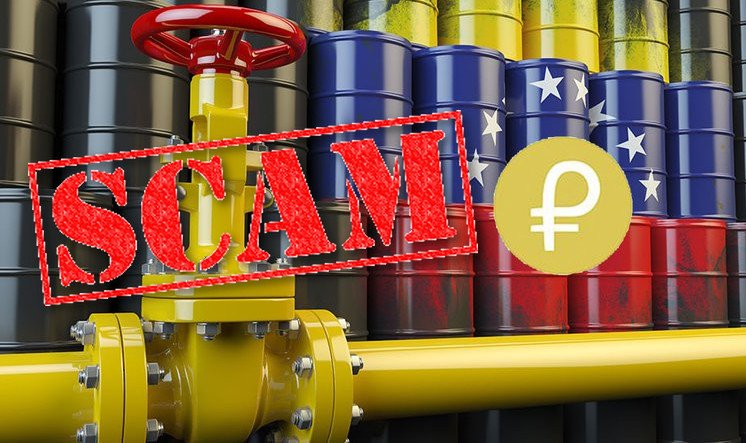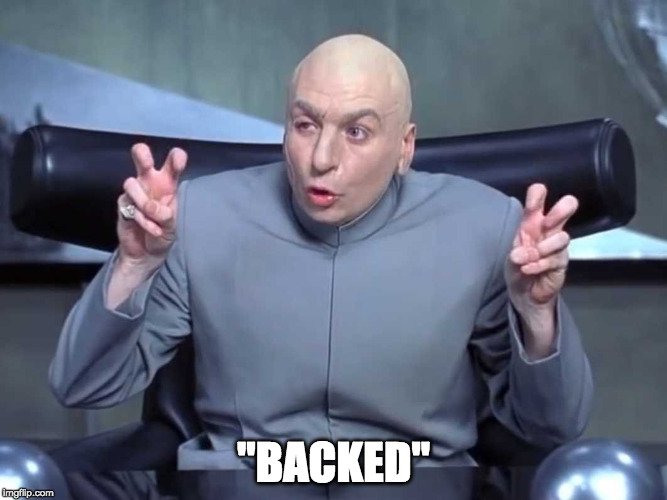
by James Corbett
corbettreport.com
February 24, 2018
A perfectly predictable thing happened when the Great Oil Price Plunge of 2014 pulled the rug out from Venezuela’s oilconomy: Foreign creditors stopped lending to Venezuela, the debt-saddled government devalued the currency to cover budget deficits, inflation spiraled out of control (entering a death spiral last November), and, perhaps inevitably, the government defaulted on some of its $US bonds. (And all this amidst devastating US sanctions of the country).
The result, as anyone who has been even casually following the headlines coming out of Venezuela has no doubt noted, has also been predictable: Chaos. Pandemonium. Desperation. People eating zoo animals. As I say, we’ve all heard the horror stories.
Another predictable outcome of this economic collapse: People started turning away from the bolivar and the increasingly-pricey US dollar as their preferred medium of exchange.
But here’s where things get interesting. When faced with this crisis, Venezuelans didn’t trade in their increasingly worthless government-issued fiat for gold and silver and other precious metals, but bitcoin. That’s right, as the prices started to rocket out of the stratosphere, people found the loophole in the system (as they always do). Everything you need to survive in Venezuela is now cripplingly expensive: Food, clothing, medicine. But not electricity. Because of the country’s socialist policies, electricity is practically free. And practically free electricity in an inflation-ravaged country in this day and age can mean only one thing: Bitcoin mining!
And so it was that thousands of Venezuelans took to mining the cryptocurrency just as it was rocketing toward all-time highs, with a miner running powerful enough equipment able to make as much as $500/month via the operation, a small fortune in Venezuela in the early part of 2017 and a sizable fortune today.
Unsurprisingly, the government reacted to this development in the way that tyrants always react when a threat arises to their monopoly of power: They cracked down. In this case, the crackdown took the form of arrests and show trials of bitcoin miners, and now a national registry for all cryptocurrency miners (which, as you might imagine, is not being taken very seriously by the kinds of people who are turning to a central bank-less, borderless, decentralized online currency in the first place).

And now the Venezuelan government is pulling another tool out of its totalitarian toolbox. In the spirit of “If you can’t beat ’em, join ’em,” the government of Venezuela has just launched its very own cryptocurrency, the “Petro.” And while you’re still wrapping your head around that, there are reports that there’s a second cryptocurrency on the way next week!
As James Evan Pilato is often heard to remark on his own podcast: “What could go right?”
Yes, cryptocurrency, that electronic payment innovation that was specifically brought into the world on the back of its promise to circumvent the central banks and their fiat funny money regime is now being used by central banks to raise more fiat funny money to fund their nation’s regime. (Exactly as predicted, I might add.)
Specifically, Caracas is hoping to raise US$5 billion from the intitial sale of Petro tokens, and if the first day of pre-sale for the new currency is anything to go by, they’re off to a good start. A $735 million start, if Venezuelan President Maduro is to be believed.
So what’s the Petro’s selling point? From the Petro’s whitepaper:
Petro (PTR) will be a sovereign crypto asset backed by oil assets and issued by the Bolivarian Republic of Venezuela on a blockchain platform. Its launch will spearhead the promotion of an independent, transparent digital economy, open to direct citizen participation, which will serve as a platform for the development of crypto assets and innovation in Venezuela and other emerging countries with great potential.
Oooh, a “crypto asset” which is backed by a perennially valued commodity? Sounds amazing! Where do I sign up?!
Wait, do you think we should read the fine print? Oh, OK. So, what exactly does “backed by oil assets” mean, then? Well, as the very next section of the whitepaper makes clear, it means absolutely nothing!
It [the Petro] may be used to purchase goods or services and will be redeemable for fiat money and other crypto assets or cryptocurrencies through digital exchange houses.
Ah, right, so this “crypto asset” is “backed by oil assets” and redeemable in…fiat and other crypto assets? I want my oil, dammit! But hey, “The Bolivarian Republic of Venezuela guarantees that it will accept Petro’s [sic] as a form of payment of national taxes, fees, contributions and public services, taking as a reference the price of the barrel of the Venezuelan [oil] basket [sic] of the previous day with a percentage discount.” So I guess you can take solace when paying your taxes in Petros that the value of your coin is tied to the price of oil. Right?

Oh, and there’s that pesky little issue of government surveillance of the whole economy. I mean, to actually hold Petros you’ll need a government-developed, government-issued Petro wallet, which will of course tie every transaction you ever make with the coin back to you personally! And all of this lovingly presided over by the Bolivarian Republic of Venezuela!
Of course, such a wonderful deal does come with some restrictions…
However, it should be noted that digital exchange houses will play a fundamental role in monitoring the prevention of illicit activities and combating money laundering, thus constituting the ideal means for commercial, industrial and business activities of international trade in which Petro interacts with fiduciary coins or other cryptoassets or cryptocurrencies.
So, what are we left with? A state-issued scam coin that is not “backed by oil” but by the government’s willingness to accept it for taxes and “services” (in Venezuela only, of course) and which will help Venezuelan tax collectors track down every transaction in the country’s digital economy. In other words, a $735 million-in-one-day hit with investors.
Still interested? Then you’re in luck, because Maduro has now promised to duplicate the scam! Enter “Petro Oro,” which, as you might have guessed from the name, will (not) be “backed by gold” in the same way the Petro is (not) “backed by oil.”

Now there may be money to be made here for crypto investors who are looking to do a quick flip on a fast rising coin, or at least a hot pre-sale token. But I care about making a quick buck in the crypto markets even less than I care about making a quick buck on the central bank-pumped phoney baloney stock market. As always, buyer beware…especially since the legal status of Americans buying this Venezuelan state-issued “asset” is very much up in the air. The SEC might not take kindly to US dollars going to the sanctioned Venezuelan government, and since there’s even less anonymity associated with the Petro then there is in most online activity, a knock on the door from the fuzz is not out of the question for American investors.
But the bottom line is that this is not a revolution in government finance or a bold new move to subvert the supremacy of the US dollar. Instead, it is exactly in line with what the oligarchs are greedily lusting after: The complete subversion of the cryptocurrency movement into a central bank-issued, government surveilled police state tool.
Happy investing!







